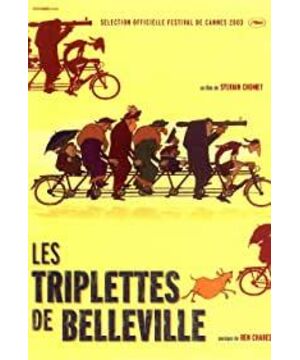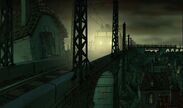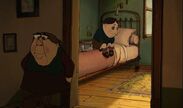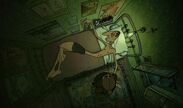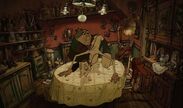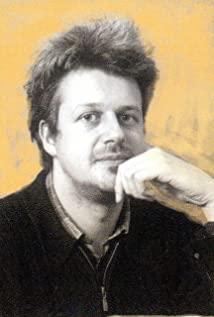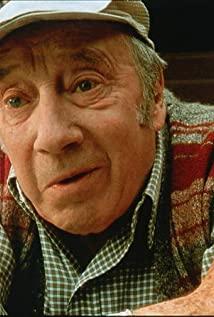The little boy who lives with his grandmother is always sloppy, and his grandmother goes to great lengths to figure out what he likes.
Grandma wanted to teach him how to play the piano, and he shook his head and ran away (probably because grandma's own piano skills were not complimented).
Grandma gave him a puppy, and he drooped his head with the dog (probably because the puppy wasn't cute).
The toy train his grandmother gave him, he watched it spin in a circle boredly (it left a psychological shadow on the dog that would never be healed).
Finally, a small bicycle made the boy smile, clapping his palms and jumping up.
I thought that the boy would win the Tour de France, but the boy fell off the chain and was kidnapped. In the end, the supernatural grandmother had to cross the ocean to rescue him.
Unlike the other two kidnapped cyclists whose eyes were dull and ferocious, the boy always stared at a pair of clear eyes with a calm expression.
I want to know what the big clear eyes see in this boy who has only said one word from beginning to end, especially when he is still burying his head on the bicycle while facing the screen.
I remember someone said before that Santiago lost the fish in the end and fell asleep. This is the reason why Hemingway is Hemingway. I hope the boy can win the Tour de France and reach the pinnacle of his life. That's why I can't become a master.
Apparently this is a better story now.
Maybe I'm still too vulgar, and the first thing I think of that makes a person happy are those worldly things. And being able to really indulge in one thing, isn't that happiness in itself? That sullen little boy, that little boy who had no interest in anything, that boy who gave up the Tour de France halfway through the race, kept on, kept on riding. For grandma, after all, she still has the ability to protect her grandson, and she can also protect him from doing what he likes all the time, isn't that enough?
In our eyes, this is the story of a grandmother who went to great lengths to rescue a grandson who was worried or even mentally abnormal.
But maybe in the boy's eyes, he rode a bicycle and took his grandma to see a bigger world - just like when he was a child, it was unclear whether it was the grandma urging the boy to move forward, or the boy leading his grandma forward.
I even have every reason to suspect that all this is intentional by the boy, so that his grandma, who has been his hero all his life, sits behind his bicycle with a sense of accomplishment, quietly and keeps riding. It's a boy who knows nothing but rides a bike, and his omnipotent grandmother's way.
I don't know if it's a translation problem or it's just the way it is. There is a name that doesn't match the style of the whole story. The works that impressed France are "All in all", "Sunday Lunch", and now this one is added. It seems that they are far from the French style in the traditional impression - they all say that the French are romantic, but the French are really not romantic if they are not romantic. The most beautiful language in the legend can be disgusting. Like burping and spitting.
The style of painting is very strange and strange. It begins with fat, exaggerated women squeezing out of the car like toothpaste one by one, each carrying a (like a note) fluffy, haggard-faced man in each hand. The boss of the gang smiled, and his face was crowded together, turning into a hamburger on a billboard on the city street. A pot full of tadpoles boiled into pulp, a pair of eyes staring straight at you, the next second turned into a devastated full moon in the sky. Reminds me of the characters and cutlery in "Sunday Lunch", which are retractable and can be switched by shape tweening throughout.
Perhaps "drugged" is the most appropriate description for France. I really want to borrow a comment "I wouldn't believe it if the screenwriter didn't take medicine." But even when the drug attacked, there was still warmth, and this romance really came to the core.
"It's over, grandma." The boy smiled and said to grandma, who was no longer by his side. This is the only word the boy speaks in the whole film.
View more about The Triplets of Belleville reviews


